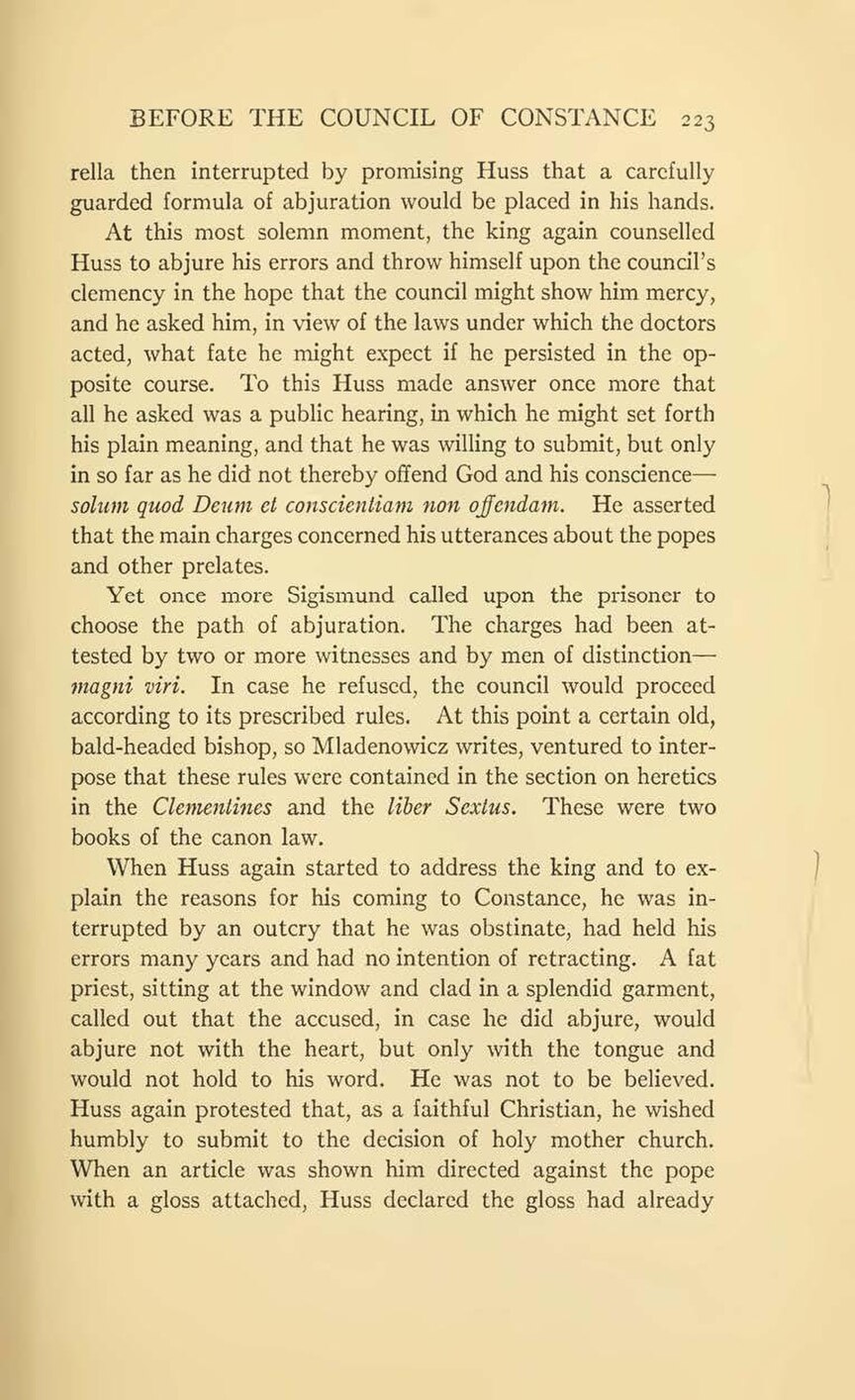rella then interrupted by promising Huss that a carefully guarded formula of abjuration would be placed in his hands.
At this most solemn moment, the king again counselled Huss to abjure his errors and throw himself upon the council’s clemency in the hope that the council might show him mercy, and he asked him, in view of the laws under which the doctors acted, what fate he might expect if he persisted in the opposite course. To this Huss made answer once more that all he asked was a public hearing, in which he might set forth his plain meaning, and that he was willing to submit, but only in so far as he did not thereby offend God and his conscience—solum quod Deum et conscientiam non offendam. He asserted that the main charges concerned his utterances about the popes and other prelates.
Yet once more Sigismund called upon the prisoner to choose the path of abjuration. The charges had been attested by two or more witnesses and by men of distinction—magni viri. In case he refused, the council would proceed according to its prescribed rules. At this point a certain old, bald-headed bishop, so Mladenowicz writes, ventured to interpose that these rules were contained in the section on heretics in the Clementines and the liber Sextus. These were two books of the canon law.
When Huss again started to address the king and to explain the reasons for his coming to Constance, he was interrupted by an outcry that he was obstinate, had held his errors many years and had no intention of retracting. A fat priest, sitting at the window and clad in a splendid garment, called out that the accused, in case he did abjure, would abjure not with the heart, but only with the tongue and would not hold to his word. He was not to be believed. Huss again protested that, as a faithful Christian, he wished humbly to submit to the decision of holy mother church. When an article was shown him directed against the pope with a gloss attached, Huss declared the gloss had already
